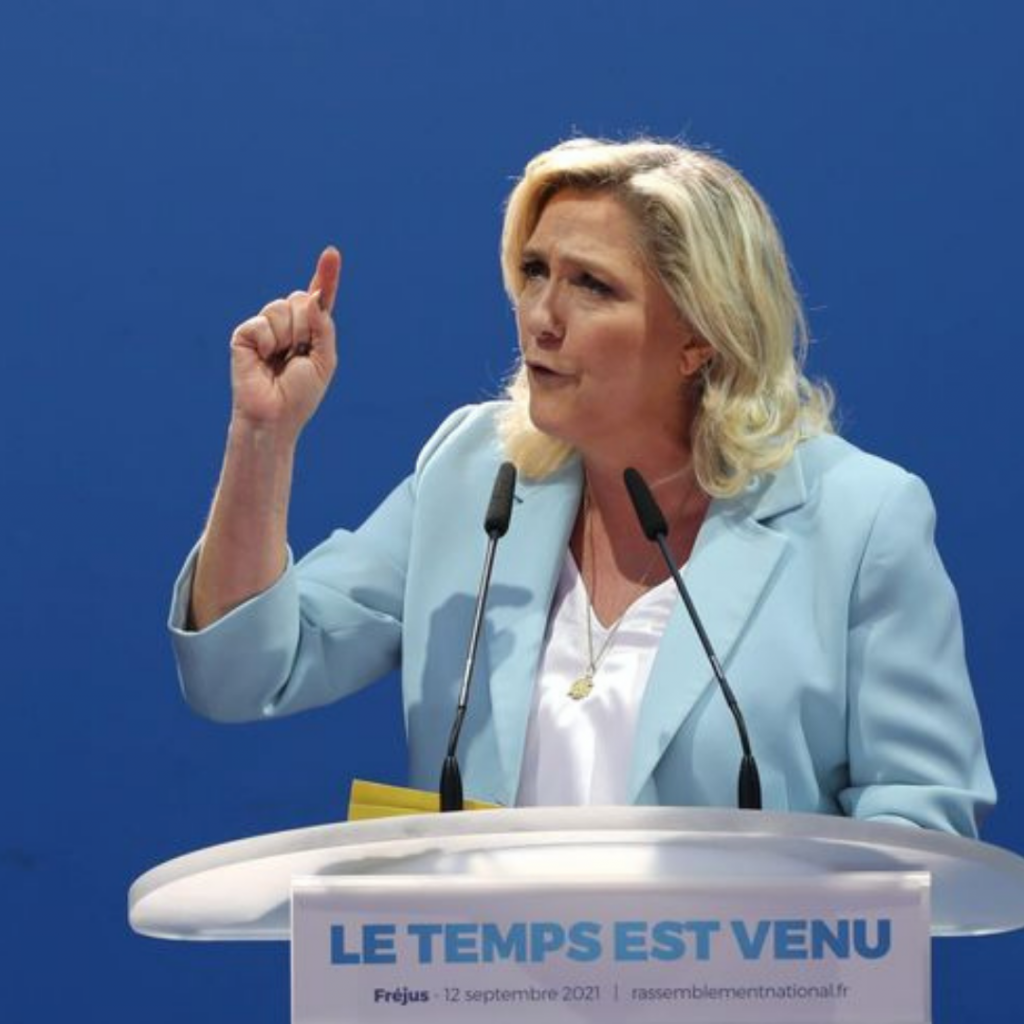Temps de lecture : 9 minutes
References
| ↑1 | Leroux, Pierre, and Sourd, Cécile. 2005. « Des femmes en représentation ». Questions de communication 7/2005 : 73-86. https://doi.org/10.4000/questionsdecommunication.4076 |
|---|---|
| ↑2, ↑5, ↑6, ↑7, ↑8 | Hentges, Gudrun, und Nottbohm, Kristina. 2017. „Die Verbindung von Antifeminismus und Europakritik. Positionen der Parteien „Alternative für Deutschland“ und „Front National“. In Europäische Identität in der Krise? Edited by Gudrun Hentges, Kristina Nottbohm and Hans-Wolfgang Platzer, pp. 167-208. Wiesbaden: Springer VS. https://doi.org/10.1007/978-3-658-14951-2_8 |
| ↑3 | Meyer, Birgit. 2019. “The Discreet Charm of Populism: The Role of Gender and Female Politicians in the AfD and Front National/Rassemblement National”. In Stifled Progress – International Perspectives on Social Work and Social Policy in the Era of Right-Wing Populism, edited by Jörg Fischer and Kerry Dunn, pp. 71-86. Opladen & Farmington Hills, MI: Verlag Barbara Budrich. |
| ↑4 | Boudillon, Julie. 2005. « Une femme d’extrême droite dans les médias. Le cas de Marine Le Pen ». Mots, Les langages du politique 78/2005 : pp. 79-89. https://doi.org/10.4000/mots.392 |
| ↑9 | Programme of the National Front for the 2017 presidential elections https://rassemblementnational.fr/pdf/144-engagements.pdf |
| ↑10, ↑11, ↑12 | Farris, Sara R. 2017. “Introduction. In the Name of Women’s Rights”. In In the Name of Women’s Rights: The Rise of Femonationalism, edited by Sara R. Farris. Durham: Duke University Press. |
| ↑13, ↑15, ↑17 | Leconte, Cécile. 2020. « Dire le genre à l’extrême-droite en Allemagne et en France : une étude comparée des techniques de présentation de soi de Marine Le Pen (FN) et Frauke Petry (AfD) ». Revue internationale de politique comparée 1/2020 (vol. 27) : pp. 7-41. https://doi.org/10.3917/ripc.271.0007 |
| ↑14 | Hentges, Gudrun, and Nottbohm, Kristina. 2017. „Die Verbindung von Antifeminismus und Europakritik. Positionen der Parteien „Alternative für Deutschland“ und „Front National“. In Europäische Identität in der Krise? Edited by Gudrun Hentges, Kristina Nottbohm and Hans-Wolfgang Platzer, pp. 167-208. Wiesbaden: Springer VS. https://doi.org/10.1007/978-3-658-14951-2_8 |
| ↑16, ↑18, ↑19 | Leroux, Pierre, and Sourd, Cécile. 2005. « Des femmes en représentation ». Questions de communication 7/2005 : 73-86. https://doi.org/10.4000/questionsdecommunication.4076 |
| ↑20 | Haddad, Marie-Pierre. 2021. « ‘Une Ambition intime : Marine Le Pen en a ‘un peu marre’ d’être associée à Jean-Marie Le Pen ». RTL, 5 novembre. https://www.rtl.fr/actu/politique/une-ambition-intime-marine-le-pen-en-a-un-peu-marre-d-etre-associee-a-jean-marie-le-pen-7900091373 (consulté le 5/02/2022 |
| ↑21, ↑22 | Boudillon, Julie. 2005. « Une femme d’extrême droite dans les médias. Le cas de Marine Le Pen ». Mots, Les langages du politique 78/2005 : pp. 79-89. https://doi.org/10.4000/mots.392 |
| ↑23, ↑24, ↑25 | SudOuest et AFP. 2021. « Rassemblement national : le parti doit retrouver as ‘virilité’, selon Jean-Marie Le Pen ». SudOuest, 30 juin. https://www.sudouest.fr/rassemblement-national-le-parti-doit-retrouver-sa-virilite-selon-jean-marie-le-pen-3977683.php (consulté le 1/02/2022 |
| ↑26 | Le Monde et AFP. 2015. « ’Salope fascisante’ : Marine Le Pen déboutée en appel contre Nicolas Bedos ». Le Monde, 18 mars. https://www.lemonde.fr/politique/article/2015/03/18/salope-fascisante-marine-le-pen-deboutee-en-appel-contre-nicolas-bedos_4596241_823448.html (consulté le 6/01/2022 |
| ↑27 | Bonnefoy, Geoffrey. 2017. « Présidentielle : Le Pen étrille Macron et drague à tout-va ». L’Express, 24 avril. https://www.lexpress.fr/actualite/politique/elections/presidentielle-le-pen-etrille-macron-et-drague-a-tout-va_1901980.html (consulté le 17/01/2022 |
| ↑28 | Law No. 2014-873 of 4 August 2014 for real equality between women and men |
| ↑29, ↑30 | Haraldsson, Amanda. 2016. „Women’s political ambition and representation. The democratic consequence of media sexism”. PhD diss., University of Göteborg. |

